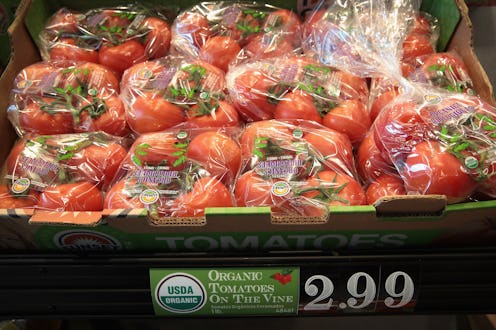Life
What Eating Organic Does for Your Cancer Risk
Buying and eating organic is supposed to save the earth, promote social justice, and improve our health, all in one fell swoop. But there's no link between eating organic and reduced cancer risk, at least not in women, according to researchers.
Using data on 623,080 middle-aged UK women from the "Million Women Study," epidemiologists at Oxford University were unable to establish a correlation between the women's organic shopping habits and their cancer risk:
The researchers could find no difference in overall cancer risk when they compared 180,000 women who said they never ate organic food with 45,000 who said they always or usually ate it. When they looked in more detail at each of the 16 different cancers, the researchers found a slightly higher risk for breast cancer and a lower risk for non-Hodgkin lymphoma in women who said they mostly ate organic food. But they said this result could be due to chance and other factors.
If eating organic were actually effective at reducing cancer risk, we'd expect to see a clear, statistically-significant relationship between eating a conventionally-produced (i.e., pesticide-laden) diet and many types of cancer. But this relationship just doesn't exist in the data. Consuming pesticides probably isn't beneficial to your health, but it's at least not cancer-causing, and you can avoid it simply by washing your produce.
While organic benefits are over-hyped, the benefits of eating fruits and vegetables in general are well-established. So if the price premium of organic produce is keeping you from eating enough servings per day, you should choose a higher quantity of fruits and veggies over (allegedly) higher, organic quality.
And while you're at it, stick to other tried and true cancer prevention basics: don't smoke, drink less, exercise, and maintain a healthy weight. These high-impact guidelines will do much more for your health than fussing over unproven trivialities like whether a food is technically "organic" or not.
